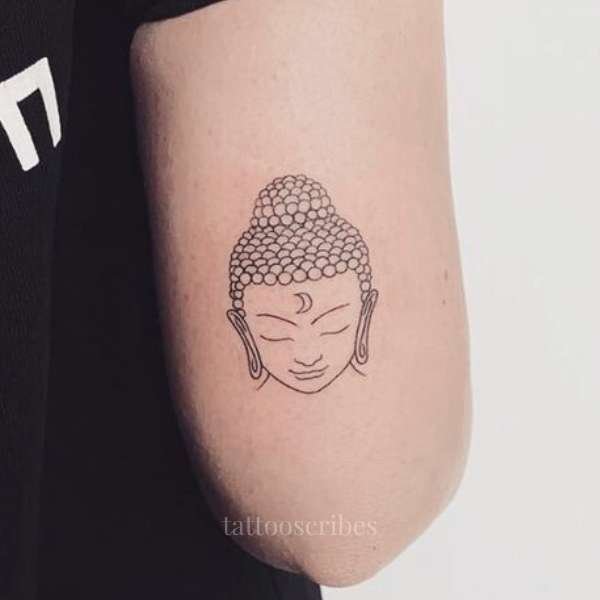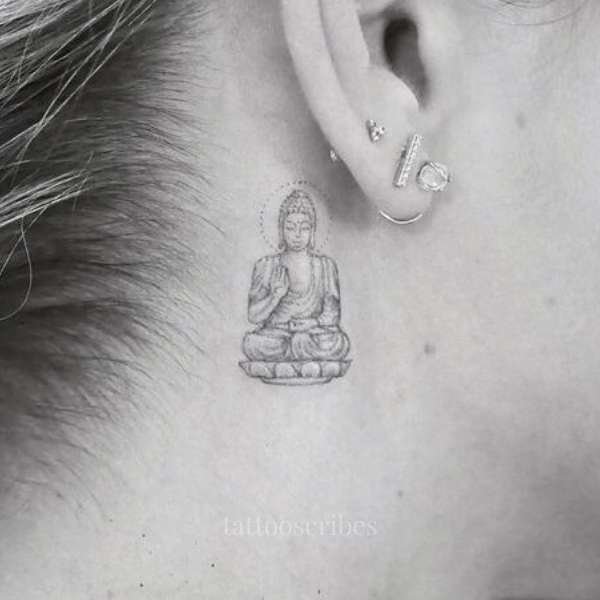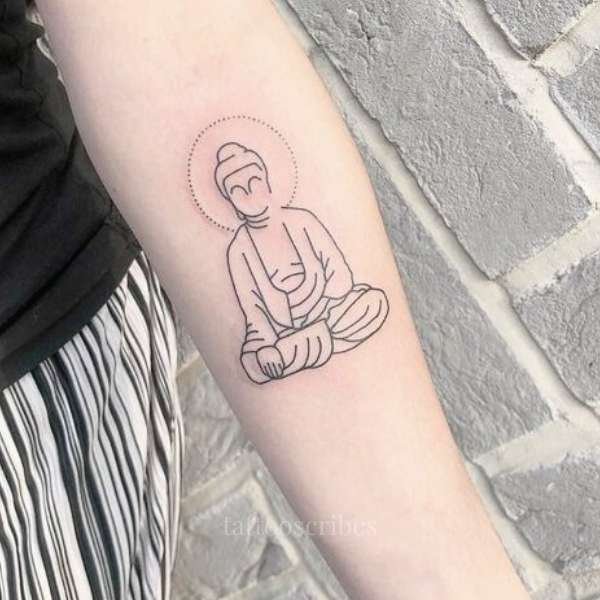Buddha tattoos are some of the most popular spiritual tattoos. They represent peace, wisdom, and spiritual growth.
These tattoos are not just designs but a way to express yourself and remind you of your inner strength.
If you’re curious about tattoo meanings or looking for meaningful ideas, Buddha tattoos are a great choice.

What Do Buddha Tattoos Mean?
A Buddha tattoo meaning reflects spiritual growth, wisdom, and compassion. It reminds you to seek balance, let go of negativity, and live in peace. Many choose this design as a daily guide toward mindfulness and self-discovery.
General Symbolism of Buddha Tattoos
- Enlightenment – Represents awakening and the path to truth.
- Inner Peace – Encourages calmness and acceptance in life.
- Compassion – Reflects kindness toward yourself and others.
- Balance – Symbolizes harmony between mind, body, and spirit.
- Detachment – A reminder to release worldly attachments and ego.
- Wisdom – Signifies insight gained through meditation and awareness.
You may also like below posts:

Cultural Meanings of Buddha Tattoos
- Buddhism – Sacred image symbolizing spiritual devotion and moral living.
- Thailand & Myanmar – Buddha tattoos (Sak Yant) used for protection and good fortune.
- Japan – Reflects meditation, mindfulness, and artistic spiritual expression.
- India – Honors Buddha’s teachings of peace and enlightenment.
- Western Cultures – Represents calmness, personal growth, and mindfulness.
Buddha Tattoo Variations and Designs
- Laughing Buddha Tattoo – Brings joy, luck, and positive energy.
- Meditating Buddha Tattoo – Symbol of mindfulness and peace.
- Buddha Eyes Tattoo – Represents omniscience and spiritual awareness.
- Lotus Buddha Tattoo – Purity, growth, and enlightenment.
- Half-Face Buddha Tattoo – Duality of peace and struggle within.

Color Meanings of Buddha Tattoo
- Gold – Divinity and enlightenment.
- Blue – Calmness and compassion.
- White – Purity and truth.
- Black – Strength and inner resilience.
Learn more about selecting the perfect artist here.
Other Symbolic Meanings of Buddha Tattoos
- Healing – Promotes mental clarity and emotional balance.
- Protection – Believed to guard against negative energy.
- Spiritual Journey – Marks transformation through self-realization.
- Patience & Acceptance – Encourages mindfulness and grace in life’s challenges.
- Hope – Inspires inner light even during dark times.
Find detailed aftercare tips here.

Meaningful Placement Ideas
- Back – Represents spiritual strength and life’s foundation.
- Chest – Connection between heart, faith, and compassion.
- Arm – Daily reminder of mindfulness and self-discipline.
- Leg – Journey of growth and movement through life.
- Shoulder – Balance between protection and inner power.
People Also Ask
Is it disrespectful to get a Buddha tattoo?
It depends on placement and intent. Avoid feet or lower body out of respect.
What does a Buddha tattoo represent?
Peace, enlightenment, and the pursuit of wisdom.
Can non-Buddhists get a Buddha tattoo?
Yes, as long as it’s done respectfully and with understanding of its meaning.
Which Buddha tattoo brings good luck?
The Laughing Buddha tattoo is often associated with happiness and prosperity.
Are colored Buddha tattoos symbolic?
Yes — gold for enlightenment, blue for compassion, and white for purity.
Ending
Buddha tattoos symbolize inner peace, spiritual growth, and enlightenment.
Whether representing personal journeys or embodying deep cultural respect, these tattoos offer more than body art—they are meaningful expressions of wisdom and mindfulness.
Please choose your design thoughtfully and wear it with respect.
